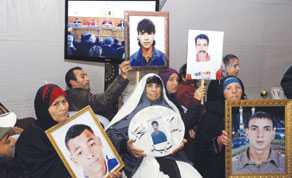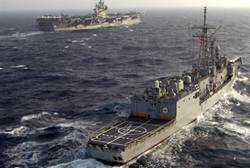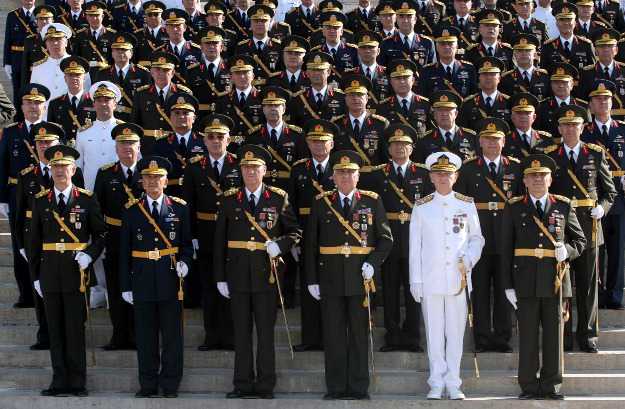 By NICHOLAS D. KRISTOF
By NICHOLAS D. KRISTOF
CAIRO
If you want to understand the Islamic forces that are gaining strength in Egypt and scaring people here and abroad, let me tell you about my dinner in the home of Muslim Brotherhood activists.
First, meet my hostess: Sondos Asem, a 24-year-old woman who is pretty much the opposite of the stereotypical bearded Brotherhood activist. Sondos is a middle-class graduate of the American University in Cairo, where I studied in the early 1980s (“that’s before I was born,” she said wonderingly, making me feel particularly decrepit).
She speaks perfect English, is writing a master’s thesis on social media, and helps run the Brotherhood’s English-language Twitter feed, @Ikhwanweb.
The Muslim Brotherhood has emerged as the dominant political party in parliamentary voting because of people like Sondos and her family. My interviews with supporters suggest that the Brotherhood is far more complex than the caricature that scares many Americans.
Sondos rails at the Western presumption that the Muslim Brotherhood would oppress women. She notes that her own mother, Manal Abul Hassan, is one of many female Muslim Brotherhood-affiliated candidates running for Parliament.
“It’s a big misconception that the Muslim Brotherhood marginalizes women,” Sondos said. “Fifty percent of the Brotherhood are women.”
I told Sondos that Westerners are fearful partly because they have watched the authorities oppress women in the name of Islam in countries such as Saudi Arabia, Iran and Afghanistan.
“I don’t think Egypt can ever be compared to Saudi Arabia or Iran or Afghanistan,” she replied. “We, as Egyptians, are religiously very moderate.” A much better model for Egypt, she said, is Turkey, where an Islamic party is presiding over an economic boom.
I asked about female circumcision, also called female genital mutilation, which is inflicted on the overwhelming majority of girls in Egypt. It is particularly common in conservative religious households and, to its credit, the Mubarak government made some effort to stop the practice. Many worry that a more democratic government won’t challenge a practice that has broad support.
“The Muslim Brotherhood is against the brutal practice of female circumcision,” Sondos said bluntly. She insisted that women over all would benefit from Brotherhood policies that focus on the poor: “We believe that a solution of women’s problems in Egyptian society is to solve the real causes, which are illiteracy, poverty and lack of education.”
I asked skeptically about alcohol, peace with Israel, and the veil. Sondos, who wears a hijab, insisted that the Brotherhood wasn’t considering any changes in these areas and that its priority is simply jobs.
“Egyptians are now concerned about economic conditions,” she said. “They want to reform their economic system and to have jobs. They want to eliminate corruption.” Noting that alcohol supports the tourism industry, she added: “I don’t think any upcoming government will focus on banning anything.”
I told her that I would feel more reassured if some of my liberal Egyptian friends were not so wary of the Brotherhood. Some warn that the Brotherhood may be soothing today but that it has a violent and intolerant streak — and is utterly inexperienced in managing a modern economy.
Sondos looked exasperated. “We embrace moderate Islam,” she said. “We are not the ultra-conservatives that people in the West envision.”
I heard similar reassurances from other Brotherhood figures I interviewed, and I’m not sure what to think. But opinions vary, and I’m struck by the optimism I heard in some secular quarters: from Dr. Nawal El Saadawi, an 80-year-old leftist who is a hero of Egyptian feminism, and from Ahmed Zewail, the Egyptian-American scientist who won a Nobel Prize and is passionate about education.
Amr Moussa, a former foreign minister and Arab League secretary general who is a front-runner in the race for president, was similarly optimistic. He told me that whatever unfolds, Egypt will continue to seek good relations with the United States and will unquestionably stand by its peace treaty with Israel.
“You cannot conduct an adventurous foreign policy when you rebuild a country,” he said. “We must have the best of relations with the United States.”
When I raised American concerns that Egypt under the Muslim Brotherhood and the more extremist Salafis might replicate Iran, he was dismissive: “The experience of Iran will not be repeated in Egypt.”
I think he’s right. Revolutions are often messy, and it took Americans seven years from their victory in the American Revolution at Yorktown to get a ratified Constitution. Indonesia, after its 1998 revolution, felt very much like Egypt does today. It endured upheavals from a fundamentalist Islamic current, yet it pulled through.
So a bit of nervousness is fine, but let’s not overdo the hand-wringing — or lose perspective. What’s historic in Egypt today is not so much the rise of any one party as the apparent slow emergence of democracy in the heart of the Arab world.
via Joining a Dinner in a Muslim Brotherhood Home – NYTimes.com.
 Egypt’s lower house of parliament has called for the expulsion of the Israeli ambassador from Cairo and halting of gas
Egypt’s lower house of parliament has called for the expulsion of the Israeli ambassador from Cairo and halting of gas




